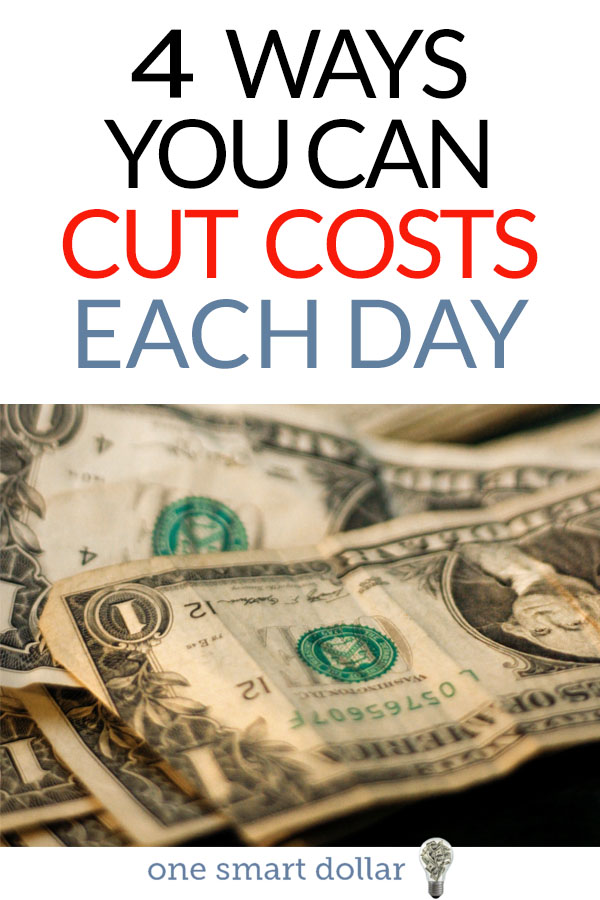
Healthy and long-term lifestyle habits are built by making small, incremental changes. The same is true when it comes to your financial health; you have to pace yourself. Savings goals should be treated like anything else — don’t bite off a bigger goal than you’re able to chew and keep down.
Rather than setting sweeping savings targets, it makes more dollars and sense to break it down. Use monthly, weekly, and daily actions you can take to support a sustainable savings habit. This way, you’ll be rewarded regularly for completed tasks rather than straining to reach a number.
Here are four bang-for-your-buck ways to yield monthly savings.
Unsubscribe From Retail Emails & Sales Alerts
You had good intentions when you signed up for that company deal newsletter. Many people make a commitment to only buy something if it’s on sale. But this kind of thinking can quickly lead to the bad habit of buying something you wouldn’t have spent money on in the first place, simply because you’re getting a good deal. For some people, bargain hunting may even become addictive.
Consumer psychologist Dr. Dimitri Tsivrikos says, “Brain studies have shown that when we are excited by a bargain, this interferes with your ability to clearly judge whether it is actually a good offer or not.”
At the end of the day, good deals and sales are marketing tactics designed to get you to spend money. Avoid the constant temptation by cancelling those emails and alerts. In an article for Time, finance journalist Mark Ellwood reminds us that “in our search for bargains, we would do well to ask ourselves whether we are really trying to economize or whether we’re being driven by an even stronger impulse: the chemical drive to get a good price.”
Cut Cords and Contracts
We now live in a pay-as-you-use-it economy where it’s more cost efficient to borrow, rent, and noncommittally subscribe to your own wants and necessities. This means it’s time to break up with landlines, cable companies, and contracts that lock you in for a year or more. All of these traditional models are designed in a way where you end up paying for excess services or products that you don’t use.
Also read: Sling TV review – Is it worth $20 a month?
For example, ditch your big fish cell phone service plan and exchange it for a no-contract or other economical option. Project Fi is Google’s most recent venture where an individual pays per GB of data up to 6GB (after 6 GB, it’s free for the rest of the month). Straight Talk is another good option with unlimited data plans as low as $35 a month.
Buy From Direct-to-Consumer Companies
Realistically, you’re going to shop on a regular basis. Severely limiting your spending to next-to-nothing isn’t the most sustainable saving solution. Instead, become more mindful about how and where you spend rather than always zeroing in on how much. One example is shifting your spending to Direct-to-Consumer (DTC) companies.
More consumers now prefer to shop from businesses with DTC models that directly engage customers via digital channels. And it’s with good reason. DTC startups are able to give shoppers a better deal than the traditional retail model by avoiding retail markups. Think Harry’s, who manufactures and sells razors and basic grooming products for a fraction of what you’d typically spend in the store. In fact, one UK study found that the store markup on Gillette razors was 4,750%.
The number of manufacturers selling directly to consumers was expected to grow 71% in 2016 to more than 40% of all manufacturers across industries. Do your homework to find DTC options for the things you need to buy regularly. Here’s a list of other products with high retail markups.
Conduct Self-Improvement Experiments
According to science, there are tangible, bad behavior-busting benefits to conducting experiments on yourself.
Clinical Psychologist Joel Minden suggests that, “instead of trying this or that to correct the problem, consider taking a systematic approach.” He reminds us that “haphazard problem-solving often brings more frustration and confusion than answers. Scientists use experimental designs to understand cause and effect relationships. You can use a single-subject (yourself) experimental design to do the same thing.”
One writer famous for his self-improvement experiments and challenges is David Cain. Most recently, he speculated about the challenge of embarking on what he calls a depth year, where “no new hobbies, equipment, games, or books are allowed during this year. Instead, you have to find the value in what you already own or what you’ve already started.”
A side effect of such an experiment would of course be saving money, and lots of it.
The consumer economy nurtures this sweet tooth. There’s just so much money to be made in selling people new paths—new equipment, new books, new possibilities. The last thing marketers want is for people to get their excitement and fulfillment from what they already have access to. They would hate for you to discover the incredible wealth remaining in what you already own. — David Cain
Attempting a depth year may be too much, however. Instead, rotate through different experiments designed to save you money in some way each month. For example, after your depth month, spend 30 days living as a freegan.
Also read: Which budgeting methods are right for you?
As Minden notes, single-case research has been unfairly dismissed and can prove to be a scientifically-sound way to change your behavior for the better.
What are you doing to save more this year? Let us know in the comments!

